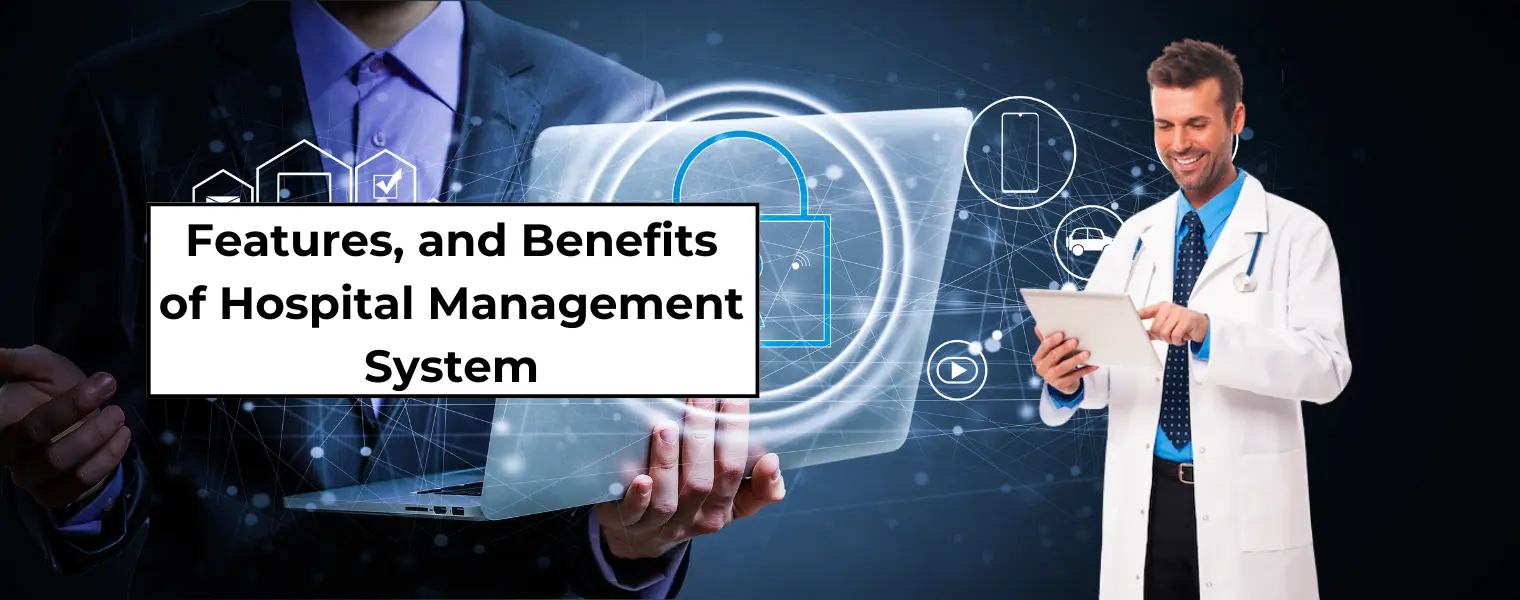
The demand for convenient medical services has grown in recent years. More software systems and tools are appearing in medical institutions as the industry rapidly digitalizes. Software solutions are developed to automate daily operations, manage bills, documentation, and inventory, and generally relieve clinicians of their responsibilities. The hospital management system is one of the most important all-in-one systems; in this article, we will look at SaaS-based HMS, as well as its key benefits and features.
A hospital management system is a standalone or cloud-based web medical management infrastructure that captures and integrates data from all departments in order to automate internal operations. At its core, HMS aims to simplify clinician workflow, reduce administrative costs, reduce errors, and provide a better patient experience. However, because the system manages every department or branch of the hospital, it encompasses a wide range of functions. It stores information about doctors, patients, laboratory results, medical supplies, appointments, bills, insurance, and reports.
Effective resource distribution is critical to good care and the overall well-being of the organisation. A well-managed workload and efficient budgeting, in particular, enable optimal hospital performance planning. Subject-specific alternatives Due to software with extensive scheduling capabilities, doctor-patient communication can also be improved. Furthermore, if all records and transactions are saved in the system, it is possible to keep track of clinical, patient, and financial data.
Increasing the consistency, scalability, and dependability of hospital management system improves patient care and experience, making a healthcare practice's operations significantly more efficient. Proper data management can help to avoid issues like delayed care for patients who need immediate medical attention. As a result, hospital management system would enhance the effectiveness and appeal of healthcare services to their target audiences: doctors and patients.
The use of a system capable of managing all types of medical data, inventory, results, and reporting can significantly improve a hospital's efficiency. Furthermore, the software automatically filters data, resulting in faster operational procedures and the elimination of time-consuming, repetitive tasks that humans must perform. Human errors are the second leading cause of healthcare mismanagement, and the hospital management system significantly reduces the likelihood of this happening. Improved data management, for example, reduces the likelihood of duplication, record typos, and other errors.
The ability to manage test results, patient data, and interact with other lab systems is one of the HMS features. This improves workflow efficiency, data accuracy, and adds value to the overall patient treatment cycle.
Sample tracking, quality assurance, reporting, and other activities can all be included in results management. The HMS system integrates with laboratory systems, collects necessary data, and organises it in the design, layering in additional patient information as needed.
EMR software is a centralised data hub that stores all critical patient information such as health records, visits, vaccines, medications, and doctor's notes. As healthcare solutions evolved, new and updated features and functions were added, but the core set remained unchanged. However, with the global pandemic and increased healthcare industry digitization, streamlined, integrated, secure, and high-performing EHR and billing software will be required.
The health technology industry is rapidly expanding, with an increase in patient-targeted applications and products. As a result, healthcare mobile apps have become an important part of the hospital's life cycle. A well-integrated application may bridge the gap between the user and technology, improving the customer experience significantly. The benefits of simple and functional application design in a healthcare setting go beyond the obvious and aid in faster and more effective illness treatment. A simple interface and enhanced functionality can alleviate patients' concerns while also vastly improving their medical experiences, increasing treatment efficiency, and even preventing disease development.
Any health service is inextricably linked with pharmaceutical companies, and the ability to prescribe and request pharmaceuticals is something that most doctors and patients look for. It not only eliminates the time-consuming manual prescription process, but it also ensures the safety and compliance of the treatment. Digital order management typically includes the following features:
Medication Tracking
e-Prescribing
Physician Order Entry by Computer (CPOE)
A significant contribution of a software solution would be recognising which components conflict with each other and sending automatic warnings and recommendations when several drugs are supplied to the patient. This type of solution also ensures compliance and the detection of any issues with prescribed medications.
A well-designed hospital management system includes numerous scheduling options to help physicians and patients communicate more effectively. You can keep track of the appointment history and the doctor's notes by logging all of the visits in the system. Furthermore, the same platform sends reminders, follow-ups, alerts when lab results arrive, and suggests scheduling an appointment as needed.
Intelligent reporting in hospital management systems is required by healthcare providers in order to better understand procedures and detect performance gaps. Furthermore, leveraging massive amounts of data enables more accurate financial statistics. Cognitive analytics are used in hospital management system to identify areas of concern, such as overspending, a lack of data, payment failure, or something else. It should also help to provide insights and ideas for improving the patient experience.
DoFort provides the Best Hospital Management System with the advanced features. Great features and interactive user interface made the DoFort hospital management system popular in the healthcare industry. Contact our experts today to know how the hospital management system can benefit your organisation.
Welcome to DoFort !